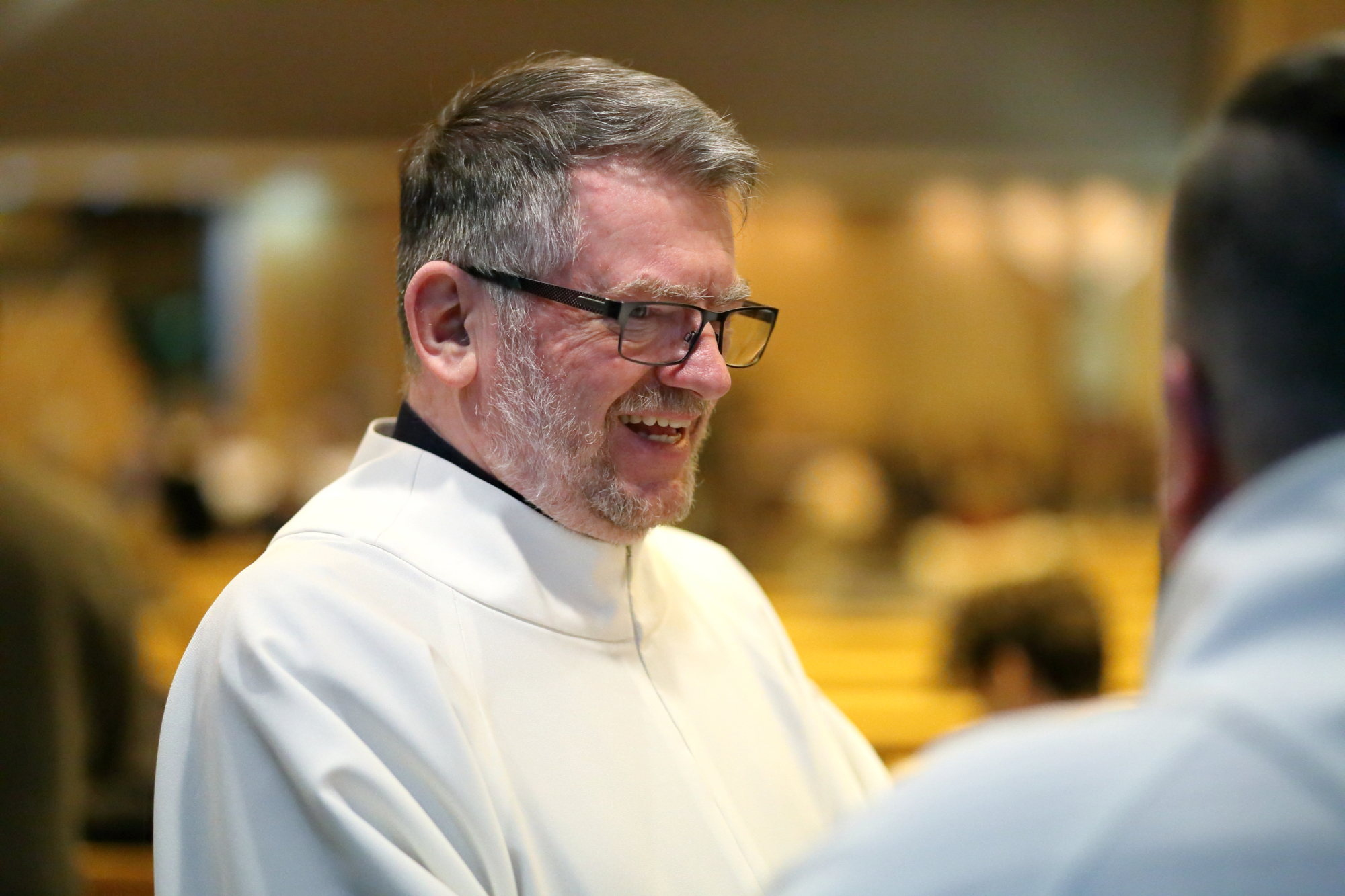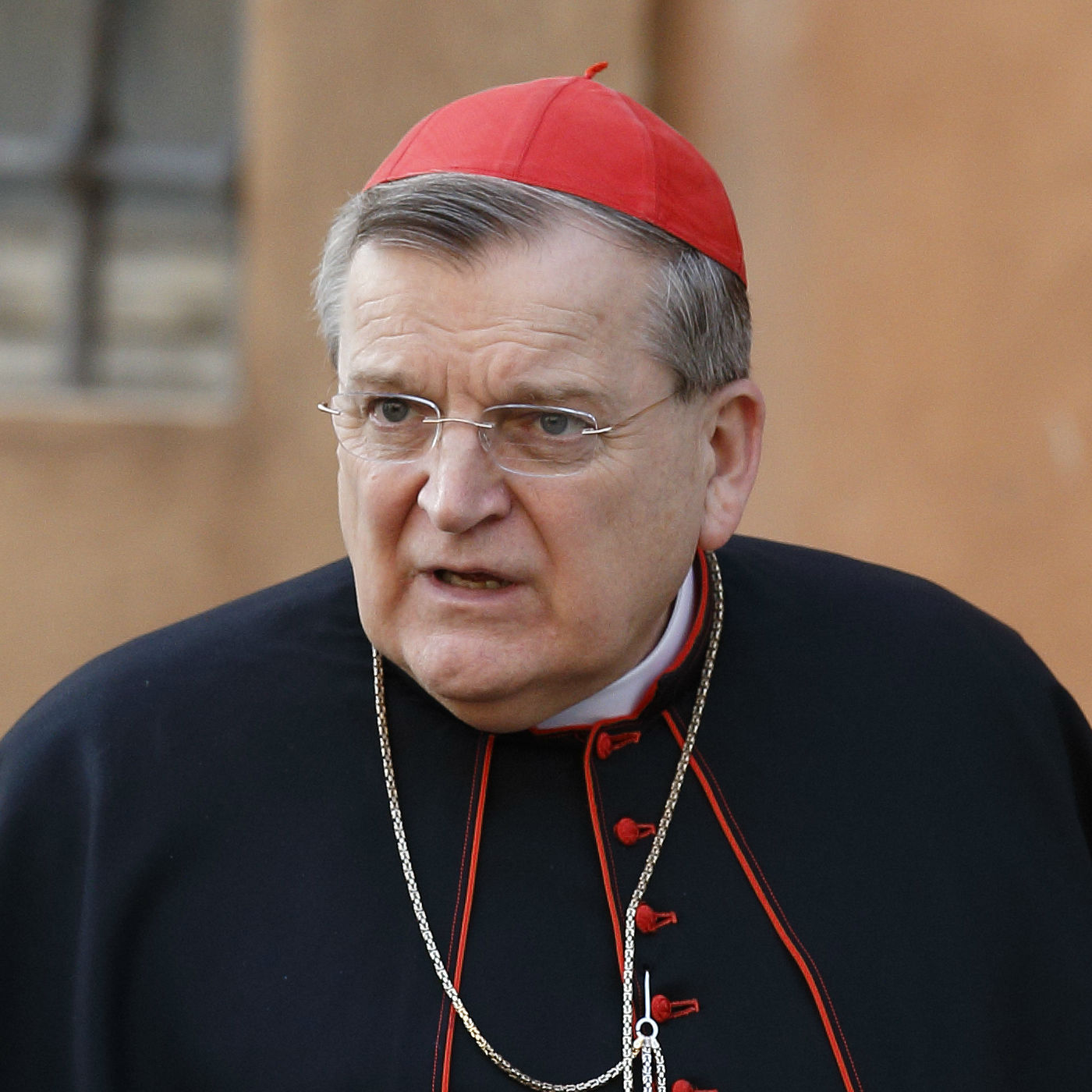In an interview with an Italian Catholic daily, Cardinal Raymond Burke has accused Pope Francis of “increasing the confusion” in the Church by “refusing to clarify” his position and the Church’s position on matters relating to marriage and the family, the sacraments, and eternal life.
He told 'La Nuova Bussola Quotidiana' that the Pope “not only refuses to clarify things by proclaiming the constant doctrine and sound discipline of the Church, a responsibility inherent in his ministry as the Successor of St Peter, but he is also increasing the confusion.”
Cardinal Burke was particularly dismayed by the Vatican’s response to a report in La Repubblica on Holy Thursday, according to which the Pope had denied the existence of Hell. The report was based on a conversation between Pope Francis and the 94-year-old atheist-communist founder of La Repubblica, Eugenio Scalfari.
Cardinal Burke is widely perceived as a critic of Francis on certain key points. He was among four cardinals, two of whom are now deceased, who submitted a list of questions to Francis, called 'dubia', seeking to end what they described as “grave confusion” regarding the interpretation of the Pope's apostolic exhortation Amoris Laetitia.
Scalfari did not take notes during the conversation but reported from his own recollection that Francis told him that those who die in a state of mortal sin “are not punished”. “Those who repent obtain God’s forgiveness and take their place among the ranks of those who contemplate him, but those who do not repent and cannot be forgiven disappear. A hell doesn’t exist, the disappearance of sinning souls exists,” is what Scalfari reported the Pope as saying. The Vatican immediately issued a statement saying that the quotes in the article were not “a faithful transcription of the Holy Father’s words”, but Burke said this response fell well short of what was needed.
“Holy Thursday is one of the holiest days of the year, the day on which the Lord instituted the Most Holy Sacrament of the Eucharist and the Priesthood, so that He might always offer us the fruit of His redemptive Passion and Death for our eternal salvation,” the cardinal pointed out. “The Holy See’s response to the scandalised reactions from all over the world was highly inadequate. Instead of clearly reasserting the truth about the immortality of the human soul and Hell, the denial only states that some of the words quoted are not the Pope’s. It does not say that the erroneous and even heretical ideas expressed by these words are not shared by the Pope, and that the Pope repudiates these ideas as contrary to the Catholic Faith. This playing around with the faith and doctrine, at the highest level of the Church, rightly leaves pastors and faithful scandalised.”
When his interviewer suggested that, in these circumstances, “it is astonishing that so many of the Church’s pastors remain silent”,
Burke replied: “Certainly, the situation is further aggravated by the silence of so many bishops and cardinals who share with the Roman Pontiff a solicitude for the universal Church. Some simply stay silent. Others pretend there is nothing serious going on. Still others spread fantasies of a new Church, that takes a totally different direction from the past, imagining for example a ‘new paradigm’ for the Church, or a radical conversion in the Church’s pastoral praxis. Then there are those who are enthusiastic promoters of the so-called revolution in the Catholic Church. For the faithful who understand the gravity of the situation, the lack of doctrinal and disciplinary direction on the part of their pastors leaves them feeling lost.”
Cardinal Burke said he was particularly concerned about the “suffering” of converts to Catholicism from Protestant Churches.
“Many people who were baptised in a Protestant ecclesial communion, but then entered into the full communion of the Catholic Church because their original ecclesial communities abandoned the Apostolic Faith, are suffering intensely at this situation — they perceive that the Catholic Church is going down the same road of abandoning the faith,” he pointed out.
Asked about his understanding of the Petrine Office itself, Burke said: “It is the essential service of the Pope to safeguard and promote the deposit of faith, true doctrine and sound discipline consistent with the truths believed.
“In the [Scalfari] interview the Pope is referred to as “revolutionary.” But the Petrine Office has nothing, absolutely nothing, to do with revolution. On the contrary, it exists exclusively for the preservation and propagation of the immutable Catholic faith, which leads souls to conversion of heart and leads all humanity to the unity founded on the order inscribed by God in His creation and especially in the heart of man, the only earthly creature made in the image of God.”
“We must always distinguish the body of the man who is the Roman Pontiff from the body of the Roman Pontiff, that is, from the man who exercises the office of St Peter in the Church,” Burke explained. “Not to make this distinction means papolatry and ends up in the loss of faith in the Divinely Founded and Sustained Petrine Office.”
“If the Pope does not fulfill his office for the good of all souls, it is not only possible but also necessary to criticise the Pope,” Burke concluded.
Cardinal Burke will be one of the main speakers at a conference in Rome tomorrow (7 April) under the title: “Catholic Church: Where are you heading?”



 Loading ...
Loading ...